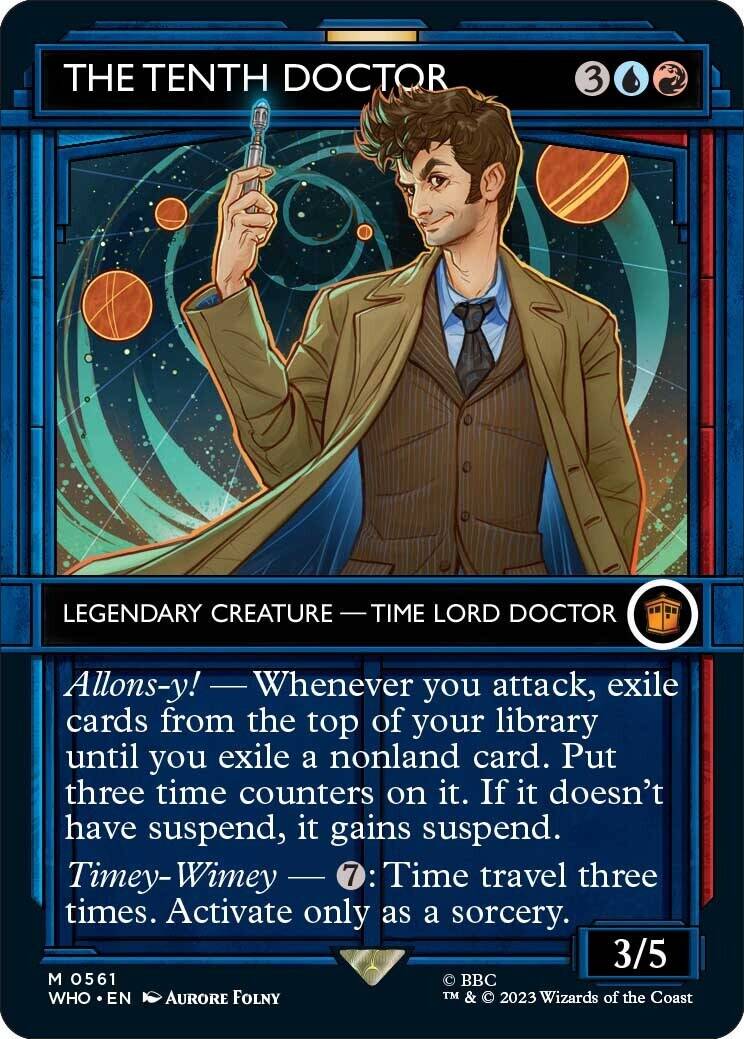Advertisement
Magic: the Gathering’s ‘Commander Masters’ capitalizes on a player-created game variant

Rapper Post Malone just bought Magic: the Gathering’s one-of-a-kind “The One Ring” for over $2 million this week, making it one of the most valuable trading cards ever sold.
But another Magic product releasing Friday, “Commander Masters,” fired up discussion over the games’ high prices, with decks ranging from around $100 to booster boxes around $300.
Granted, Magic has rarely been a cheap hobby, and the cost of “Commander Masters” pales in comparison to the $1,000 “30th Anniversary Edition” that sparked uproar last year. Like other “Masters” sets, it includes desirable reprints in deluxe, randomized packs. A decade ago, these expensive products catered to hardcore tournament players, but today’s release underscores the ascendancy of a casual, player-driven alternative that started on the fringes of the gaming world.
From Elder Dragons to Dungeons & Dragons
Magic, as its designers will tell you, isn’t just one card game – it’s a sprawling web of interrelated games. Soon after its debut in 1993, players twisted its basic rules to create 100-card decks that supported a defining legend like the ancient dragons that gave the format its first name: Elder Dragon Highlander (EDH).
Just like the tagline to the 1986 movie “Highlander,” “there can only be one.” Nearly all of your deck’s hundred cards must be unique, but you’ll always have one special creature available to play — the titular commander. Adjudicated entirely by fans for nearly two decades, gamemaker Wizards of the Coast started to officially design for it in 2011.
Even as it grew to become Magic’s most popular format, I kept my distance for years. Begrudgingly maintaining an “Erebos, God of the Dead” deck to have something to play during tournament downtime, I scorned “Commander’s” infamously finicky games which could take hours to finish.
But Wizards of the Coast found a way to rope me in. “Commander Legends: Battle for Baldur’s Gate” combined my nostalgia for “Dungeons & Dragons” with the Magic draft gameplay I’d fallen for in college. While I still didn’t like how games would lengthen with more than three players, I could get behind the idea.
Advertisement
Gods, rings, and outer space
The appeal of “Commander” lies in its expressiveness. It rewards players for building hyper-specific plans around favored cards, and makes you feel like you, personally, are the genius behind a beautiful snowflake of a deck.

Wizards has even started marketing “Commander” as an entry-point: a bizarre choice when it comes to the format’s notorious complexity, but a sensible one when it comes to getting someone invested in a deck. I used to play “Erebos, God of the Dead” because I was a mean bastard who wanted to finish games quickly. Now, I play “Aragorn, King of Gondor” because I like “The Lord of the Rings” and want to cram the deck with as many of the trilogy’s heroes as I can.
Over time, a collector’s mania started to grip me. I began to justify “Commander” decks as art galleries that doubled as game pieces. In a move I would have considered unthinkable just months ago, I even dropped nearly $200 on officially-released “Warhammer 40K” decks — the first in what’s sure to be a long line of crossover “Commander” products (the next, based off of “Doctor Who,” are due later this year).
Which brings me back, at last, to price. Years ago, the cards professionals played at world tournaments went for dozens or hundreds of dollars. Since the pandemic and the pro scene’s near-implosion, those once-iconic staples have lost much of their value, while cards for “Commander,” a casual format played on kitchen tables, shot up.
Someday, the frenzy for fancy “Commander” cards may cool. For now, however, it seems like a sure bet for Wizards of the Coast. They control the printing presses — and if the format can (at least partially) win over a skeptic like me, I’m sure it will command attention for years to come.
